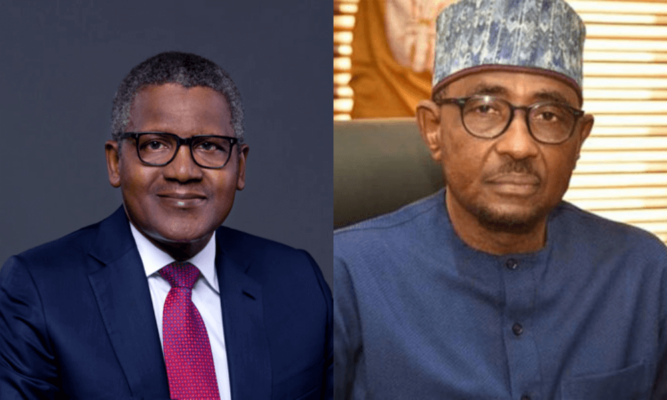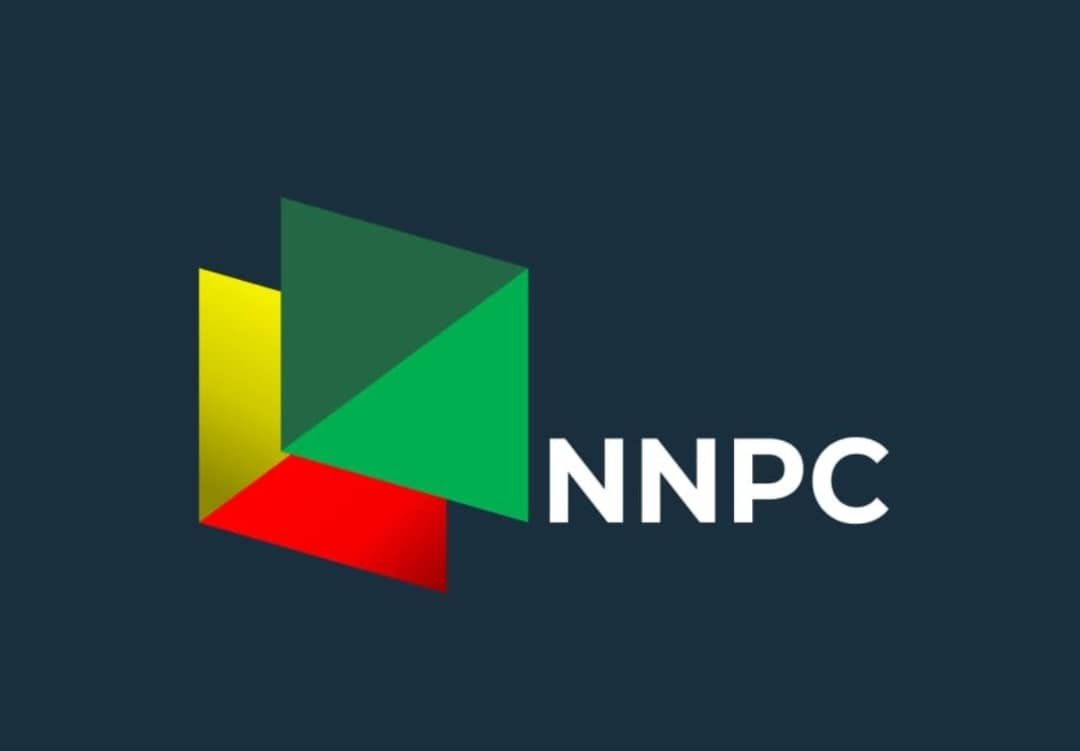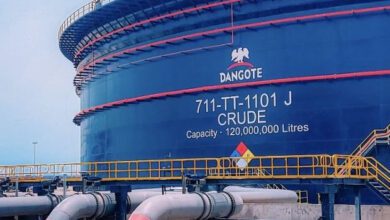
For some weeks now, the media space has been awashed with the stories of the yet-to-be-commissioned 650,000 barrels per day (bpd) Dangote Oil Refinery and Petrochemicals company.
The media altercation was between the Nigerian Midstream and Downstream Petroleum Regulatory Authority (NMDPRA), an agency of the Federal Government and the Dangote Industries Limited (DIL).
It was truly a case of the more you see the less you understand, because much of the underlying issue was shrouded in secrecy.
Although, despite the secretive nature of the issue, some details have emerged, that those behind the issue are the oil cartels who have held the nation’s oil and gas industry captive since the discovery of oil in the country on January 15, 1956.
The fire was ignited by the Vice President, of Oil and Gas at DIL, Devakumar Edwin, who accused the International Oil Companies (IOCs) in Nigeria and the Regulator, NMDPRA of frustrating the company.
Edwin accused the IOCs of deliberately and wilfully frustrating the refinery’s efforts to buy local crude by jerking up the high premium price by $2-$4 above the official price, thereby forcing it to import crude from countries as far as the United States, with its attendant high costs.
Edwin also accused the NMDPRA, of granting licenses, indiscriminately to marketers to import dirty refined products into the country.
The revelation made by Edwin sparked a fire that has been raging between the company and the Authority, with some Nigerians blaming the Authority for speaking in defense of the IOCs, and oil markers in the country.
At a point, we thought that the issue had been resolved, especially, after the Authority denied that no oil marketer was importing dirty fuel into the country. But we thought wrong as the barrage was reinforced by the Authority Chief Executive of the NMDPRA, Engr. Farouk Ahmed while addressing the State House Correspondents, recently in Abuja.
Ahmed, not minding his role as the industry regulator, threw cautions to the wind, and announced that products from the Dangote refinery were inferior and substandard in quality.
He alleged that the Dangote refinery and other modular refineries like Waltersmith and Aradel produced diesel with sulphur content ranging from 650 to 1,200 Parts Per Million (PPM), thus inferior to imported ones.
He also accused Dangote of trying to introduce a monopoly by calling for the suspension of imports of some products like Automotive Gas Oil (AGO)-Diesel and Dual-Purpose Kerosene (DPK) being produced by the refinery, noting that the refinery was just 45% complete and has not been commissioned yet.
He said it was risky for the nation to depend solely on one refinery as demanded by Dangote, stressing that such was not good for the nation in terms of energy security, and even the market because of monopoly.
This ugly reality as expressed by the Regulator was, however, greeted with backlash from Nigerians and Dangote who tackled the NMDPRA boss, asserting that the products of the refinery were of superior quality compared to imported equivalent and meet international standards.
Dangote expressed confidence after the Leadership of the House of Representatives insisted on testing other diesel products, alongside Dangote’s diesel at its state-of-the-art laboratory.
During a tour of both Dangote Petroleum Refinery and the Dangote Fertiliser Limited complex by members of the House of Representatives, the Speaker of the House of Representatives, Rt Hon. Tajudeen Abbas and other members who observed the testing of Automotive Gas Oil (diesel) from two petrol stations alongside Dangote Petroleum Refinery, praised the company for its significant investments and contributions to Nigeria’s development.
The diesel samples were procured from two well-known filling stations near Eleko junction along the Lekki Epe Expressway, by the honourable members. Chairman of the House Committee on Downstream, Hon. Ikeagwunon Ugochinyere, and Chairman of the House Committee on Midstream, Hon. Okojie Odianosen, oversaw the collection of samples from the Mild Hydro Cracking (MHC) unit of Dangote refinery for testing of all the samples.
Lab tests revealed that Dangote’s diesel had a sulphur content of 87.6 ppm (parts per million), whereas the other two samples showed sulphur levels exceeding 1800 ppm and 2000 ppm respectively.
Dangote emphasised that these findings debunked claims made by Farouk Ahmed, CEO of the Nigerian Midstream and Downstream Petroleum Authority, who recently asserted that imported diesel surpasses domestically refined products.
Dangote openly challenged the regulator to compare the quality of refined products from his refinery with those imported, advocating for an impartial assessment to determine what best serves the interests of Nigerians.
This position has thrown Nigerians into more confusion as to whom to believe. Should Nigerians believe that the Dangote refinery produced diesel with sulphur content ranging from 650 to 1,200 Parts Per Million (PPM), as alleged by the regulator, or believe that the refinery produced diesel with a sulphur content of 87.6 ppm (parts per million), as revealed by the company? Only time will tell.
FEDERAL GOVERNMENT WADES INTO FACE-OFF
Just yesterday, the Minister of State Petroleum Resources (Oil), Senator Heineken Lokpobiri convened a high-level meeting with top executives from Dangote Group, the Nigerian Midstream and Downstream Petroleum Regulatory Authority (NMDPRA), the Nigerian Upstream Petroleum Regulatory Commission (NUPRC), and the Nigerian National Petroleum Corporation Limited (NNPC) to address the ongoing issues surrounding the Dangote Refinery.
The Minister noted that the meeting was a collaborative effort to find sustainable solutions to the challenges affecting the refinery, disclosing that all parties involved demonstrated a strong commitment to proactive problem-solving and expressed their gratitude for the leadership and timely intervention provided.
He emphasized the critical importance of cooperation and synergy among all stakeholders to ensure the success and optimal performance of Nigeria’s oil and gas sector, which is essential for the country’s economic growth and energy security.
This was apt because, for a sector that has not witnessed any major investments for the past 12 years and hopes to attract about $20 billion in investments, having this kind of war may scare investors away.
Again, with the target of $30 billion in revenue by 2025, the Dangote refinery is capable of solving the nation’s foreign exchange problem, and its pressure on the naira, while also catalyzing Nigeria’s economic development.
Nigeria, one of the world’s leading oil-producing countries, exports all its crude oil for refining and subsequently imports refined products due to a lack of operational refineries. It is estimated that Nigeria imports at least 50 million litres of petrol per day to meet domestic demand.
According to data from the National Bureau of Statistics (NBS) in its Foreign Trade Statistics for the Fourth Quarter of 2023, Nigeria spent approximately N12 trillion on the importation of petroleum products in 2023, including premium motor spirit (PMS), commonly known as petrol. This figure marks an 18.68% increase compared to the N10 trillion spent on fuel imports in 2022.






